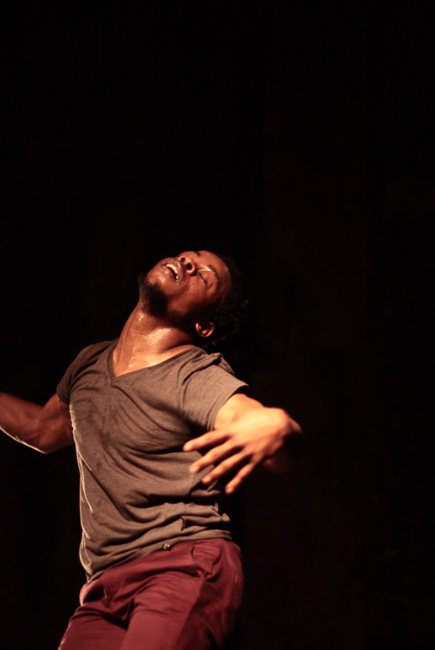NO RETURN

As an European cultural agent highly interested by the social and creative circumstances of Africa, I am joining Marta Moriarty, a Spanish eminence in this matter, in our No Return project which consists -among reading, studying, curating- in physical journeys to the African continent with no possible intellectual way back. No Return is mainly based in learning from what we may call ‘art in action’ - artists are involved in changing social and political reality with performative practices that are laden with visceral symbolism-, which I find inseparable from the works of all the African artists that I know best or with whom we have worked so far- Kudzanai Chiurai, Haroon Gunn-Salie, Zanele Muholi, Binelde Hyrcan, Mamela Nyamza or Mohau Modisakeng among others.
No Return’s goal is to subvert the old notion of a Binary Reality to transform it into an emotional and exploratory journey through the concept of Corpus Callosum applied to the curatorial practice, facilitating the identification between realities that, due to geopolitical conditions, have not had many opportunities to escape from a colonial relationship.
By expanding perception with this journey to a new, permanent, expanded state, with the great privilege that lays in the possibility of putting yourself in the other’s place, we revisit and reverse the notion of 'hospitality' — from the Latin 'hospes,' meaning both a person playing host to someone, and a guest. This ambiguity prevents us from determining the roles and reverses completely the colonialist attitude — to encourage exchange while challenging the neo-colonial narrative through the suspension of judgement, adaptation, attention, and admiration.
To reach the No Return point we will play with the double-sided ontology of art: on the one hand, making us aware of our own existence ('to exist means to feel and to think,' as Aristotle would have it); on the other, bringing us together in community (illuminating the actions and thoughts we all have in common). Recognizing ourselves in the other’s creation will allow us to deepen our common roots and free ourselves from obsolete ideas such as, for example, that ultimate’s Western culture origin lays in Ancient Greece. This, subsecuently, will guide us to the questions of what is 'the real' and what is 'reality', which I began to explore after seeing Qudus Onineku’s performance at the Nigerian Pavilion in the Venice Biennale: “Right here, right now,” he said. “There is nothing intellectual about it. Or philosophical. It’s just a question of being here, now. Without any preparation more than what we have now. So we aren’t going anywhere. We are not showing you anything. You are not going to see anything, because you are part of something. You are not an audience. You are an active participant in this. So I need you to be present.” This ontological play has a distinctly anti-colonial purpose. More than encouraging admiration of the 'Other,' the project challenges us to move past this dichotomous construction to view other cultures as an extension of ourselves (an alter ego, or 'heteros autos' in the Greek). No Return is about sharing something immanent in our individuality, finding another 'myself.' We expose ourselves to an art that brings us closer both to the realms of visual pleasure and cryptic politics. I perceive ourselves as piece of the concept, and reality as a more important piece from it. I have been interested in the African situation for some years now, but haven’t been to the continent yet. I consider very important what Adenrele Sonariwo says "It is a different narrative when you have someone who has been living outside of Africa as opposed to someone creating content within Africa with the challenges of Africa”
We already are in 2018, the way of looking to Africa has long ceased to be that of the European painters of the early twentieth century, who transformed their interpretations into cubist forms and expressionism. Now the influences are re-directed and do not go through a European digestion, this doesn’t happen neither the other way around: the language used by many artists in the African continent is a completely new bet in the parameters of the artworld and, nonetheless, it is definitely international on its highly individualized iconography and fluid use of live media to express complex political, social and aesthetic developments. Real synergies are established. The No Return project aims to stop confronting both realities and to fuse them, to integrate one in the other and specially to point that the symbolic, spiritual, active performative African art is understood in an ontological and intense way everywhere else around the globe.
While the performance in America and Europe has its origin scarcely more than half a century ago, in African countries it is an ancestral tradition, for its balsamic, festive, curative, in short, communicative, character.
As RoseLee Goldberg, Founding Director and Chief Curator of Performa, explains: “(...) it is this feature that is the connecting thread between the artists and that underlines the idea of art itself in countries where community, ceremony, ritual and politics are communicated through live performance with an intensity of image-making, song, music, dance, spoken word and poetry that all hold equal value as cultural markers in civic life”
"When we started the process we didn't have all the right answers but we had conviction." Adenrele Sonariwo
Inés Muñozcano
*Image: Qudus Onineku